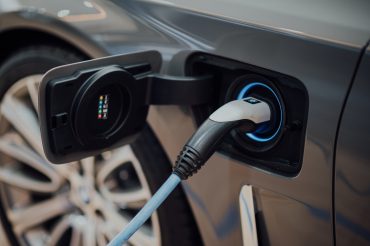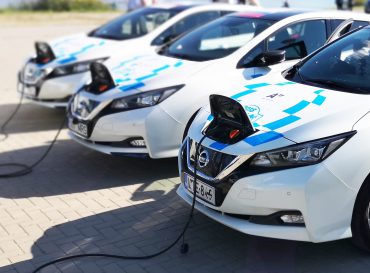UK transportation is stuck in a rut. Rail fares are rising every every year, gridlock problems continue to plague our roads, and transport poverty has become a very real issue for low-income households.
The RAC’s 2014 Report On Motoring warned that many UK car owners are now leaving them unused because they are simply too expensive to operate. These ‘ghost cars’ are going untaxed, uninsured and dormant because it is now cheaper to use alternative transport methods.
Multi-modals were mentioned in the same report. This is a term given to people who travel using a mix of methods on a day-to-day basis. They might cycle one day or combine a bus and taxi trip the next. As complicated as that may sound, this is often the simplest, most direct – but not necessarily cheapest – method for people using public transport every day.
Enter Greg Marsden, Professor of Transport Governance at the Institute for Transport Studies at Leeds University. He has coined and drafted a green paper around a concept called ‘Fleximobility’ that proposes sea changes to the UK’s transport sector with money-saving and convenience firmly in mind. Greg and his team also look to lower carbon emissions, introduce new smart technology into transport, while incorporating the shared travel ethos into our everyday lives.
While the concept may seem bold to some, it’s clear something needs to be done to reduce the amount of roads being built in the UK, and to support the efforts of bodies like Campaign For Better Transport , which strive to make the roads we have more efficient, instead of simply building more as a short-term solution to a broad problem.
We spoke with Greg recently to discuss the Fleximobility concept, and to better understand how it can help improve transport for all. Here’s what we discussed.
Liftshare: Can you give our readers a top-line overview of what Fleximobility means to you, and why it is important to the UK?
Greg: Fleximobility is about designing the transport system so that it is more normal for people to travel by a range of modes of transport more of the time. It is essential to the future transport strategy because we are not yet making the technological progress in emissions reduction [we] anticipated. It is good for health and we need a balanced approach to managing urban congestion.
A lot is made of the potential for smart technology to help. The key issue however is whether smart technology will fulfil its potential if it is introduced in a system which is not structured to being spontaneous and multi-modal.
Liftshare: Where in your mind does the UK transport sector get it wrong at present, and what can be done?
Greg: I would start by saying there are lots of examples of things we get right. Liftshare is an organisation that does a lot of this. However, you can find examples all round the country of effective bike sharing schemes or personalised travel planning linked to new investments. However, there is not enough [people] joining up.
This can be in failing to develop skills and a desire for independent mobility without always relying on your own car at the transition from subsidised college travel to early work years. In other ways, being occasionally more multi-modal is not rewarded through high cost single tickets and pre-booking slots for bicycles on trains or by all-or-nothing car park permits for workplace parking.
Liftshare: One term in your green paper – ‘multi-modals’ – is being used a lot lately. Why do you think this approach to transport is being used more often these days?
Greg: It might be a recognition of a shift in the culture of ownership of vehicles, at least amongst younger people or a recognition of the need to do things differently. With mobile technology people can do more on the move nowadays when they aren’t driving. It is important to say that almost everyone is multi-modal.
We focus too much on putting people in coarse categories of ‘cyclist’ and ‘car driver’. If you ask people what they ‘usually do’ as we tend to in our surveys then you get a reductionist answer. If you find out what they actually do it is much more varied. If you look across the lifecourse then everyone is multi-modal.
Liftshare: To what extent would offering the public a single-ticket option for all of these transport methods solve a great deal of problems?
Greg: Simplifying ticketing and moving across modes [of transport] has to be pushed. People want to get from A to B and know what they are going to pay however they do it, and they only want to pay once.
Liftshare: The notion of ‘ghost cars’ – those going unused – suggests their owners can’t afford to keep them running, yet the RAC found that 81% of ghost car owners weren’t prepared to part with their vehicle. To what extent are we at an impasse here?
Greg: Car clubs, car sharing in its various forms and innovations in the taxi market might chip away here. The motor manufacturers are also proposing new models of more flexible ownership. There may be some generational effects to be considered. We need a mix of solutions and Liftshare is in the market of developing and delivering these solutions. There is lots to learn through these experiences.
Liftshare: What are your potential next steps for the Fleximobility green paper, and what should people out there do if they’d like to help make a change in the way they travel?
Greg: We have run four workshops in cities in the UK and will be next working with citizens to refine the ideas further. Our aim is then to take this back to national government with a clear set of priorities for what needs to be done differently in order to make being more multi-modal, more often, more normal.
We’d be keen to hear from anyone who wishes to take part in this debate to make a difference. You can find out more at http://www.fleximobility.solutions/ and please tweet us good and bad examples of transport systems promoting multi-modality @fleximobility.
Thanks to Greg for his time and brilliant insight into the multi-modal world. If you would like to try car sharing, you can offer or request lifts within our 420,000-strong community today at Liftshare.com, or by using our free Android and iOS apps.
Author liftshare
on
Comments are closed.
You might also like…
See how Liftshare can help your organisation


